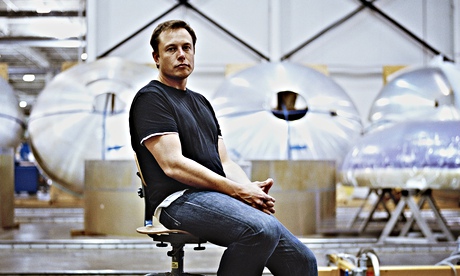
Many years ago, in 1999 to be exact, Andy Grove, who was then chairman of the giant chip-maker Intel, famously predicted: “Companies that are not internet companies in five years’ time won’t be companies at all.” He was widely ridiculed for this assertion, mostly because his critics didn’t understand what he was getting at. All he was saying was that the internet, which in 1999 was still regarded by much of the world as exotic, would one day be regarded as a utility, like mains electricity.
Grove was right. What he omitted to say, however, was that the net would never be as important as electricity. This fact appears to have escaped the notice of some folks in the computing business; it certainly escapes many of those who breathlessly report its doings. But it’s obvious the moment you think about it. If we had to choose between the internet or access to electrical power, which one would we go for? No contest.
What we have come to accept as civilised life depends utterly on secure supplies of electricity. We would miss the net, of course, and large chunks of our technical infrastructure depend on its continuance, but we could get by without it. Take away electricity, however, and our modern machine, including the net, stops.
Those of us who write about ICT sometimes forget that, in the grand scheme of industrial things, it’s small beer compared to industries such as transportation (and its infrastructure), energy, healthcare and biotechnology. Which is why a really smart long-term investor would be more interested in these fields than in what happens to cloud computing, “wearables” and other IT obsessions de nos jours. And even within the IT business itself, some are using the vast revenues accruing from their current mastery of the technology to gain a foothold in the things that will really matter in our collective future.
One such visionary is Elon Musk, a South African-born entrepreneur who made a colossal pile from PayPal and has been doing interesting things in non-IT fields ever since. The world knows him most for his creation of Tesla, the company that makes high-end electric cars, and SpaceX, an outfit that specialises in what really is rocket science. But probably the most interesting thing about Musk is that he has focused on solving the problem that keeps us in a world that depends utterly on electricity but lacks a way of storing it efficiently and cost-effectively: the problem of battery technology.
For some time, Musk has been building a huge factory to make such batteries and he is widely believed to be planning a major announcement on 30 April. Until recently, most people assumed that his new factory would be making improved batteries merely for powering electric vehicles.
But if the rumour mill is correct, Musk has set his sights higher – on new battery technology that would make it possible efficiently to store the quantities of electric power needed to run modern homes. If he has indeed managed to do something like that, then it would be a game-changer on an epochal scale.
You don’t need to be a rocket scientist to understand why. Our global future depends on finding a way of generating electricity without burning ever more fossil fuel or building nuclear power stations at an improbable rate. We know how to generate electricity with so-called renewable sources – wind power and solar cells, for example. The problem is that renewable sources have variable outputs and presently don’t provide the stable, baseline electrical supply on which society depends. (Harnessing tidal power or nuclear fusion might do it but they’re still a long way off.) But what if we had a way of storing the power that flows from renewables when they are generating so that we could have it available when they aren’t?
The rational response to the rumours about Musk’s announcement is to be sceptical. There’s no pure technological fix for global warming. And a lot of smart people have been trying to design better batteries for decades and progress to date has been agonisingly slow, but maybe things are suddenly changing. Last week, for example, researchers at Stanford reported that they had developed a rechargeable aluminium-based battery that can safely charge a smartphone in one minute, which is good news to this columnist, whose phone ran out of juice the other day when he was using it to navigate the wilds of Scotland. If Musk can do this kind of thing on a larger scale, then things really will be looking up.
I say that with feeling because, just as I was typing that sentence, my laptop ran out of charge.

